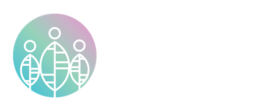5 Ways to Boost Your Family’s Immune Systems Naturally
By Allison Riehs | Naturopath
What if you could boost your family’s immune system naturally?
Coughs, colds and runny noses are commonplace in Australian households – especially come winter time.
But it doesn’t have to be that way.
You can take simple steps to help protect the health of your family naturally, starting with these five immune boosting tips.
1. Get outside
The thought of cool winter air might have you hiding under the covers. And Netflix and hot chocolate might sound more tempting than venturing outdoors for a green juice. But low dose sunshine exposure boosts Vitamin D levels and benefits the immune system, in ways scientists still don’t fully understand.1Sunbathing for hours on end is not recommended, but studies support regular low-dose exposure such as that from enjoying outdoor activities for 30 minutes to an hour each day. Natural sunlight exposure also supports the circadian rhythm or ‘body clock’, stabilising the body’s sleep and wake cycles to support restful and restorative sleep, further strengthening the immune system.2
2. Drink up
Before you get excited, this doesn’t mean more wine. In fact alcohol leads to dehydration and suppresses the immune system, which is the opposite of what we’re trying to achieve.3 We all know water is vital to human survival, but did you know staying well hydrated is one of the easiest ways to support the immune system?4 Drinking adequate water each day delivers oxygen to cells, removes toxins from the body, and supports healthy mucous membranes which can be protective against colds and flu. So, another round of waters for the household!
3. Sleep well
It’s easier said than done for busy families, (especially new parents) but the importance of a good night’s sleep cannot be underestimated. Studies show a lack of sleep not only suppresses the immune system, but also contributes to the risk of cardiovascular disease, diabetes, obesity, and cancer.5 You can help establish healthy sleep habits for the whole household by finishing the evening meal a few hours before bed, cutting back screen time and blue light exposure at night (try good old fashioned books instead), keeping sleeping spaces at a comfortable temperature and clear of clutter, and seeking support for any sleeping issues you or a family member might be experiencing.
4. Eat the rainbow
Some foods are more beneficial than others when it comes to strengthening the immune system and fending off colds and flu. Combining antioxidants and essential vitamins and minerals, some of the top performing immune boosting foods are oranges, lemons, limes, red capsicum, broccoli, garlic, ginger, turmeric, spinach, almonds, green tea, papaya, kiwi fruit, sunflower seeds, grapes, berries, onions, carrots and fresh herbs. But if you can’t remember that list, or you’re battling to feed fussy children, just focus on combining fresh foods in as many colours as possible at every meal to ensure you’re all getting the nutrients your bodies need.6
5. Love your guts
You might have heard the saying, good health starts in the gut. And it’s true! Supporting and strengthening your gut microbiome has a direct impact on the immune system.7 One way to achieve this is with the support of prebiotics, which are fibrous substances humans cannot digest, allowing them to feed the beneficial bacteria in your gut instead; and probiotics, which are live bacteria in certain foods and supplements. Prebiotic foods include seaweed, flaxseeds, burdock root, cacao, konjac, apples, bananas, asparagus, leaks, garlic, onion, artichoke, dandelion and chicory root. While great probiotic food options are kombucha, kimchi and fermented vegetables, kefir, tempeh and miso. Consult your natural healthcare practitioner for advice on the right probiotic supplement strain for you and your family.
References:
- Maglio. G et al, 2016, ‘Sunlight Effects on Immune System: Is There Something Else in addition to UV-Induced Immunosuppression?’, BioMed Research International, <https://www.ncbi.nlm.nih.gov/pmc/articles/PMC5187459/>
- Stone. J et al, 2018, ‘Temporal dynamics of circadian phase shifting response to consecutive night shifts in healthcare workers: role of light–dark exposure’, The Journal of Physiology, Vol 596, Issue 12, pp 2381–2395 <https://www.ncbi.nlm.nih.gov/pmc/articles/PMC6002215/>
- Szabo-Saha, 2015, ‘Alcohol’s effect on host defense’, Alcohol Research Current Reviews, Volume 37, Issue 2, pp 159-170 <https://www.ncbi.nlm.nih.gov/pubmed/26695755>
- Popkin. B et al, ‘Water, hydration and health’, Nutrition Reviews, Oxford Academic, Vol 68, Issue 8, pp 439-458 <https://www.ncbi.nlm.nih.gov/pmc/articles/PMC2908954/>
- Luyster. F et al, ‘Sleep: A health imperative’, Sleep Research Society, Oxford Academic, Vol 35, Issue 6, pp 727-734 <https://www.ncbi.nlm.nih.gov/pmc/articles/PMC3353049/>
- Benzie-Choi, 2014, ‘Antioxidants in food: content, measurement, significance, action, cautions, caveats, and research needs’, Advances in Food and Nutrition Research, Vol 71, pp 1-53, <https://www.ncbi.nlm.nih.gov/pubmed/24484938>
- Markowiak-Śliżewska, 2017, ‘Effects of probiotics, prebiotics and synbiotics on human health’, Nutrients, MDPI, Vol 9, Issue 9, p 1021 <https://www.ncbi.nlm.nih.gov/pmc/articles/PMC5622781/>
Ready to learn more about immune health? Book an appointment with Allison today!

